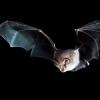In a world first, doctors have been given permission to give a British man with CJD a pioneering treatment.

CJD is a rare but lethal brain disease for which there is no known cure, but the Court of Protection has given permission for the trial use on a human for the first time.
Scientists say lab testing of the man-made antibody has been encouraging, but they admit they do not know how their patient will respond.
The treatment is called PRN100 and aims to prevent abnormal prions from being able to attach themselves to healthy proteins, meaning that they cannot grow and cause devastation throughout the brain.
University College London Hospitals NHS Foundation Trust (UCLH) is set to use it in a patient for the first time after a judge confirmed that it was lawful.
Professor John Collinge, Director of the Medical Research Council Prion Unit at UCLH, who led the development of the treatment, said: “As this is the first time this treatment has been used in humans we cannot predict what the outcome will be, but laboratory testing has shown the potential to treat prion infection.”
Image credit | iStock




